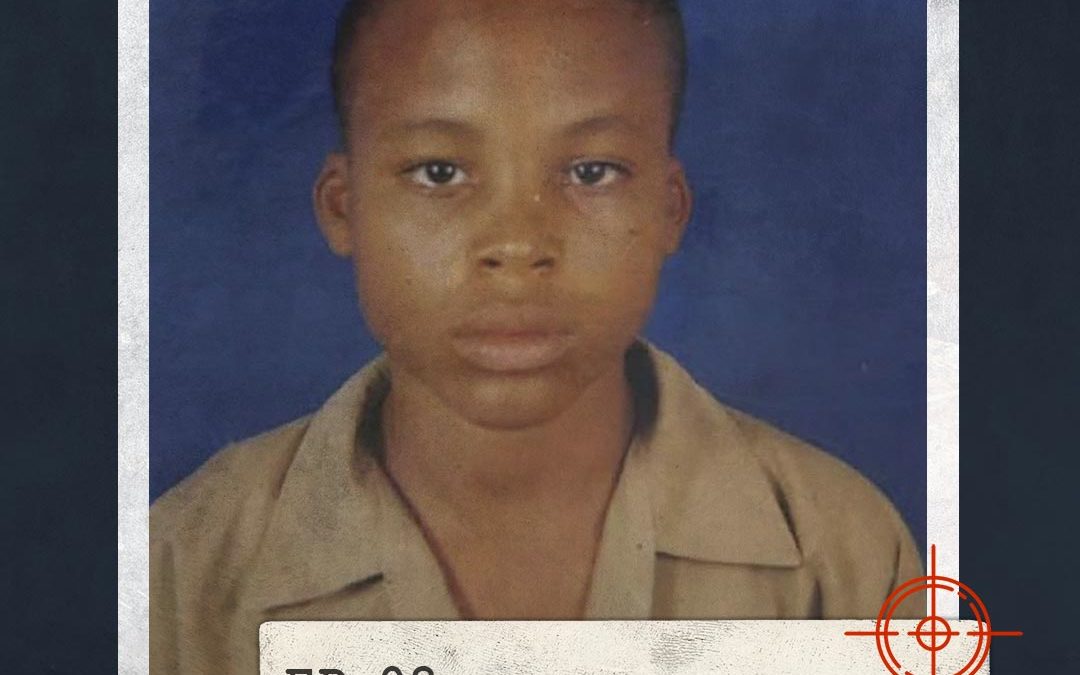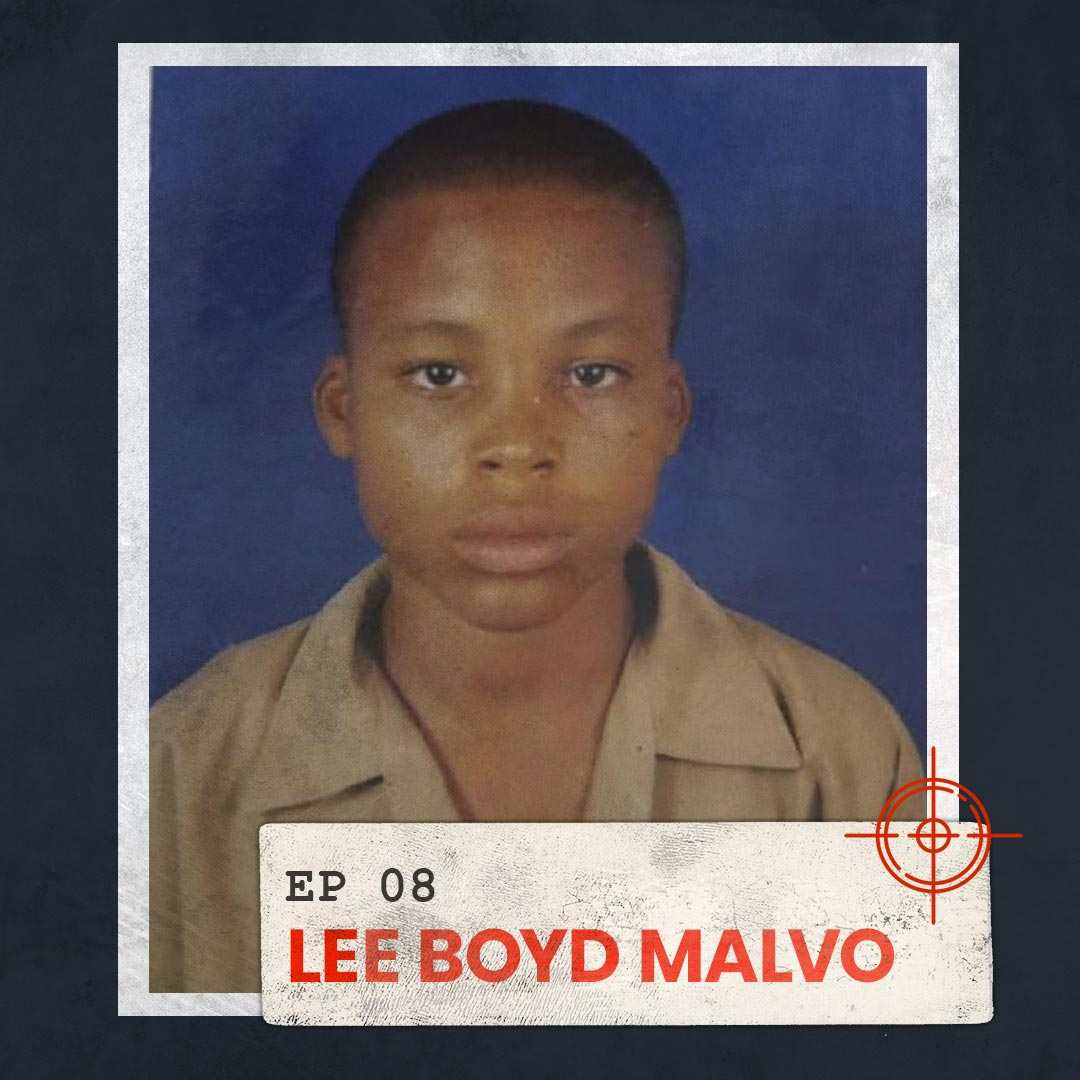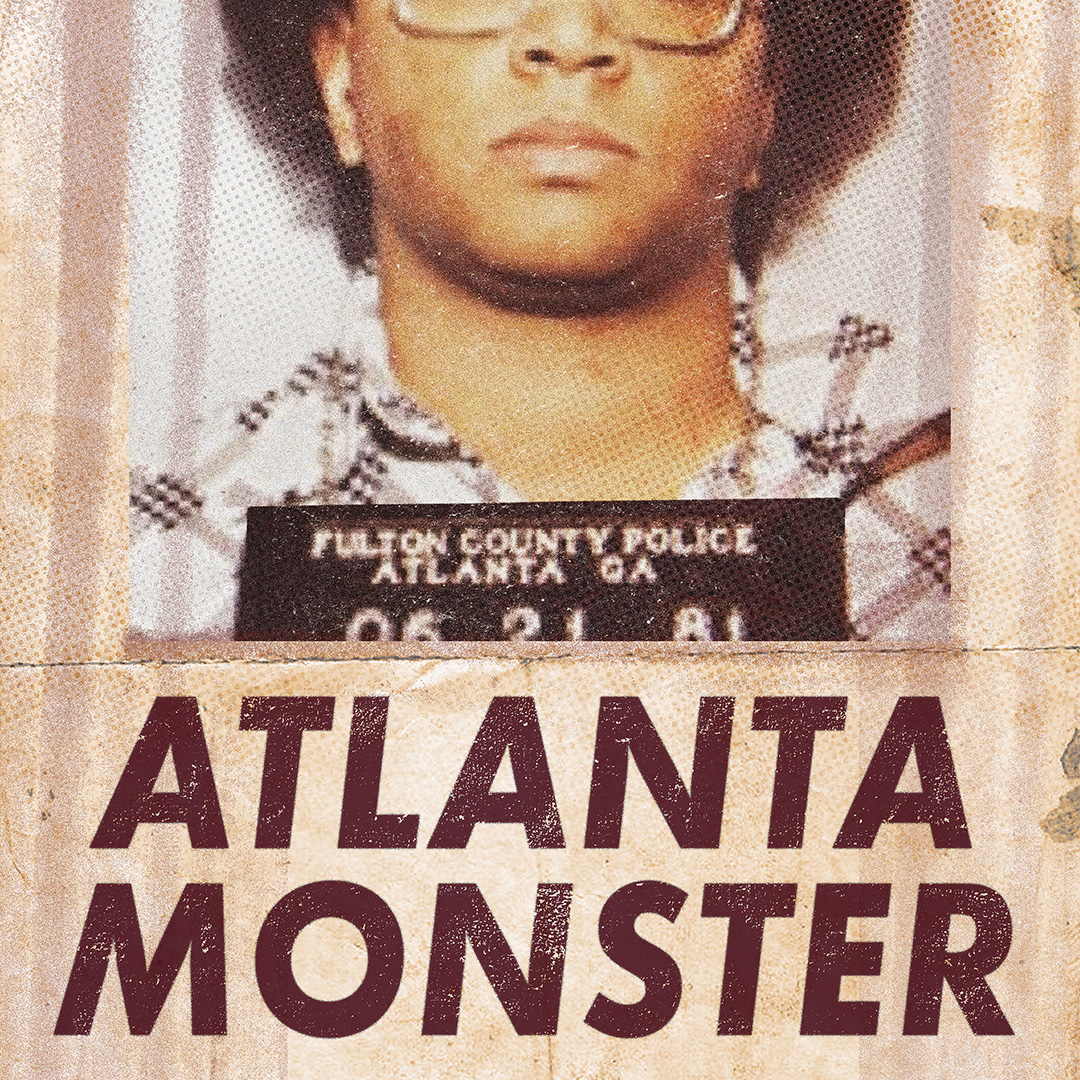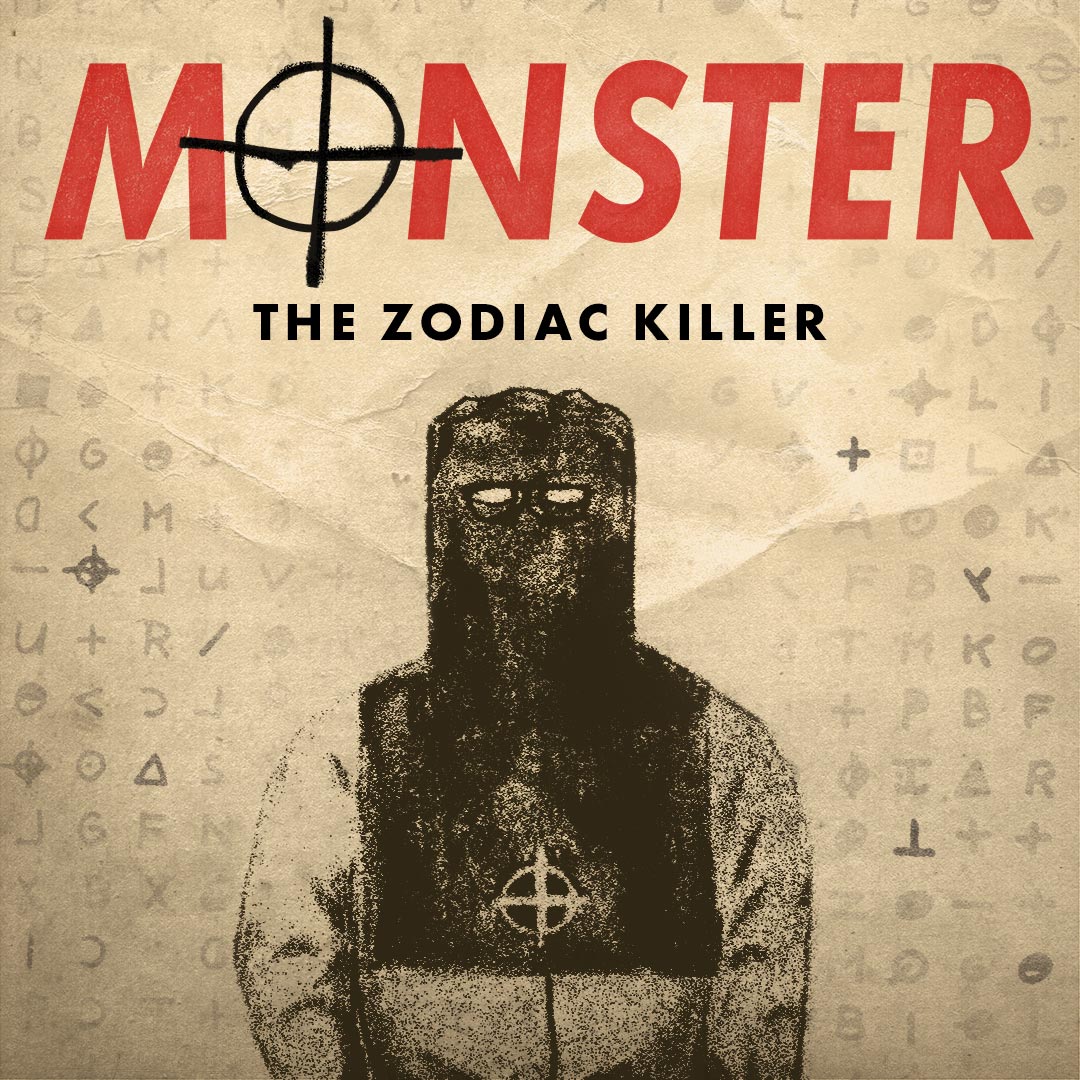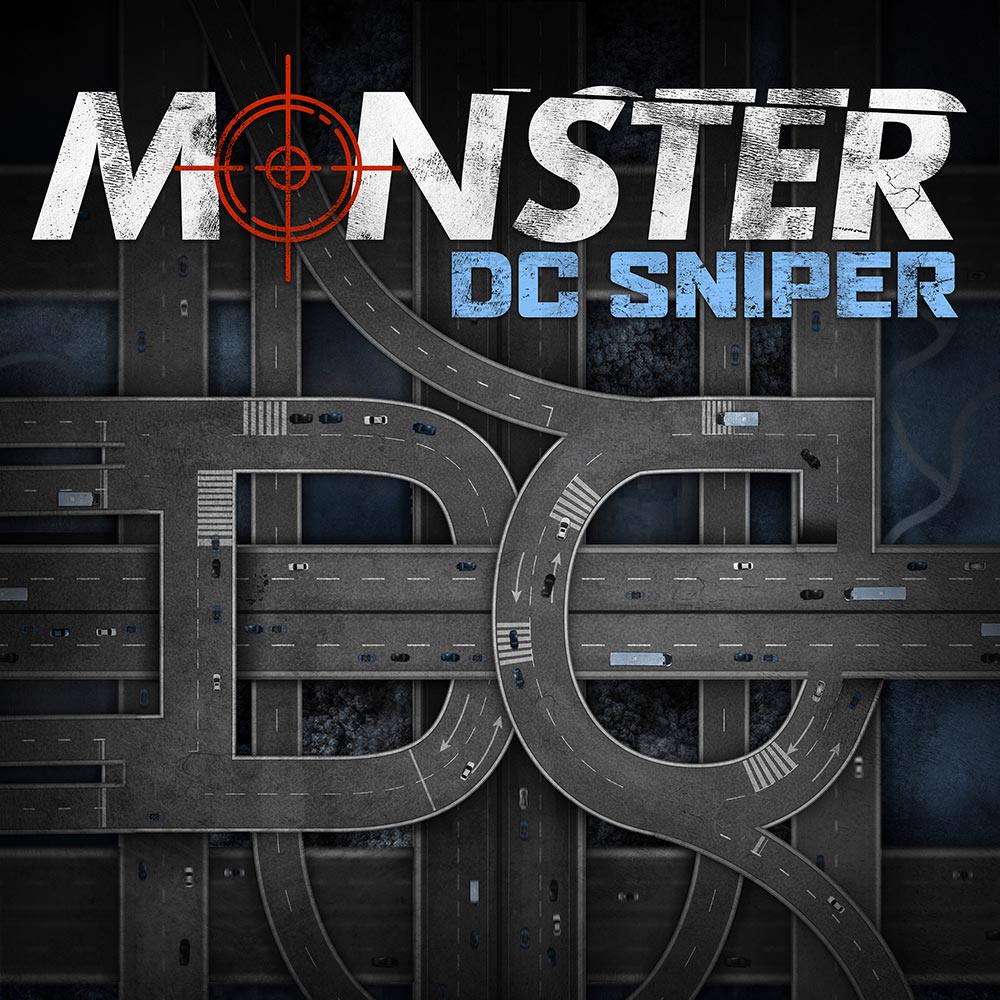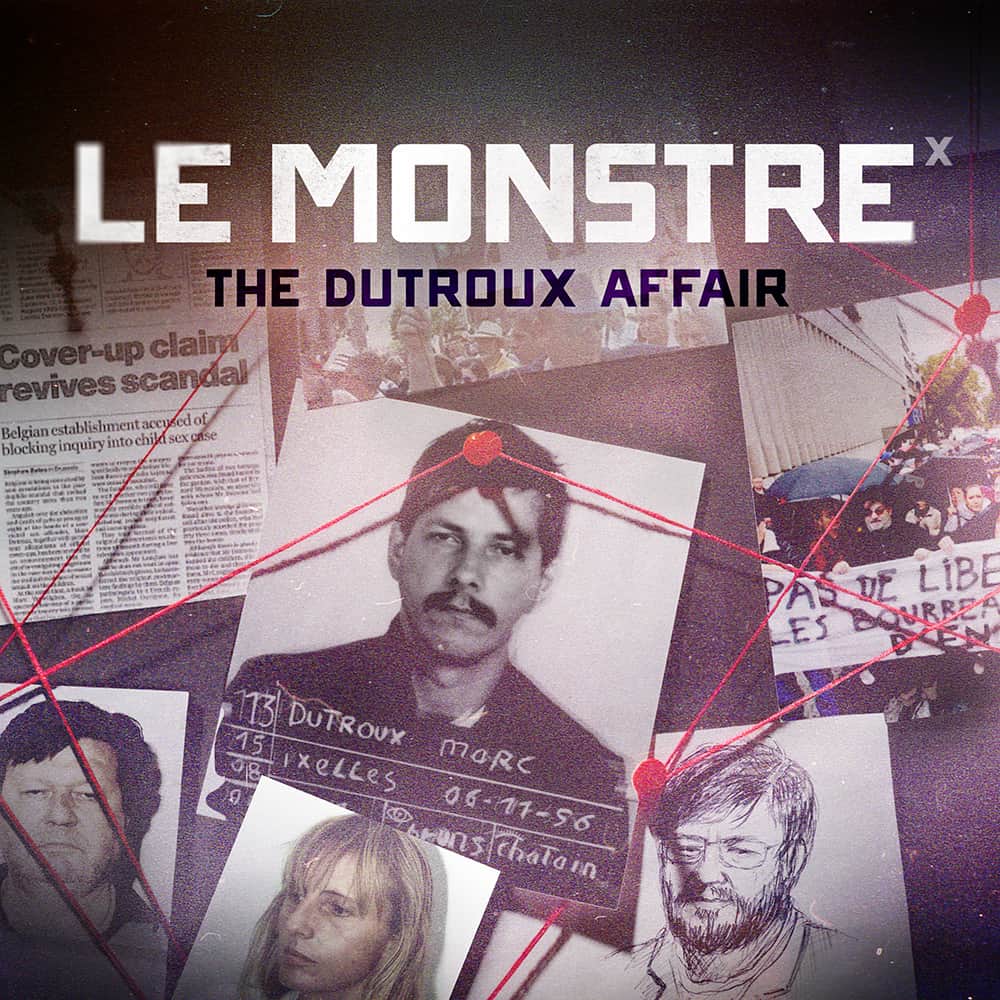8 • LEE BOYD MALVO
After Police found a fingerprint at an Alabama crime scene, they got the name Lee Boyd Malvo. So who is this 17 year old from Jamaica?
Transcript
Speaker 1:
Welcome to Monster: DC Sniper, a production of iHeartRadio and Tenderfoot TV. The views and opinions expressed in this podcast are solely those of the podcast author or individuals participating in the podcast and do not represent those of iHeartMedia Tenderfoot TV or their employees. Listener discretion is advised.
Tony Harris:
Three weeks into the DC Sniper investigation, police connected a fingerprint from an Alabama crime scene to two names John Allen Muhammad and Lee Boyd Malvo. Last episode we explored Muhammad story. After his wife asked for a divorce, he disappeared with his three children. This episode who was Lee Boyd Malvo, a 17 year old from Jamaica, and how was he connected to Muhammad? At the time, investigators were stumped, but years later we finally started to get the answers. Many of those answers came from the work of criminologist and criminal profiler Anthony Meoli. Meoli spent nine years corresponding with Lee and listening to his side of the story. Meoli recorded a series of phone calls with Lee titled Interview with the DC Sniper, which you will hear clips from throughout this episode. Lee also wrote an autobiography, which Meoli helped edit and publish.
Anthony Meoli:
Diary of the DC Sniper is a verbatim transcript from Lee Boyd Malvo word for word. This is a very rare time where you’re able to understand how an individual develops from the day he’s born to the day he was arrested for one of the most sensational crimes of our modern time. The takeaway from it is not the grizzly nature of what happened at the end but what led him to that.
continue reading
Anthony Meoli:
Lee Boyd Malvo was born February 18th, 1985 in Kingston, Jamaica. He was born to Leslie Malvo and Una James, his mother. He took the name Malvo from his father, but they were never formally married, at least according to Lee. At the time Lee was born, his mom was 21 and his father was 37 so there was a 16 year age gap. In Kingston, that wasn’t tremendously unusual, but that separation of age did lead to many differences between how their relationship developed.
Tony Harris:
Lee remembers his father Leslie as kind and permissive. Lee says he spent his early years on a tricycle and Leslie would pull him through the neighborhood by a rope tied to the tricycle’s handlebars. Lee’s mother Una, on the other hand, was the disciplinarian.
Anthony Meoli:
Una was very strict in many ways. She would be calm, cool, and one moment and then violent the next.
Tony Harris:
Lee told Meoli that when his mother got angry, she would sometimes beat him to the point of drawing blood.
Anthony Meoli:
At the same time, she did care for him and she did provide for the family, but she was gone most of the time. So it would not be unusual for Lee to be fending for himself at a very young age.
Anthony Meoli:
One day while she was out at work, he was left alone and he was awfully young. He was five, six years old. She had some jade figurines that she kept around the house. They were small, trivial objects to some but to her they meant something. He was playing with an airplane and running around the house and bumped into one of these jade figurines, and it broke.
Lee Boyd Malvo:
I break one of these things and I’m crying. I’m crying before she comes home.
Anthony Meoli:
He was expecting a beating. He knew she was going to hit him and hit him hard.
Lee Boyd Malvo:
She came into the house, she shouts at me and charge doors.
Anthony Meoli:
She came home in a rage and was about to wail off on Lee and his father stepped in.
Lee Boyd Malvo:
And he grabbed me up. He says, “This is the person. This is a thing. That can be replaced. He cannot.”
Anthony Meoli:
This is a thing pointing to the object and this is your son, and you need to be able to separate those two right now. Whether that message rang true with Una remains unclear.
Lee Boyd Malvo:
My father would like the go between. He was my protector because he always know what to do or what to say in those moments.
Anthony Meoli:
It really stuck with him that this is what a father does. A father protects his child, and he had some fond memories of his father until eventually his father left him and that’s when things started to go sour.
Speaker 5:
There is a ruthless person on the loose.
Speaker 6:
What unnerved this community the most is the randomness of the murders. Ordinary people doing ordinary things.
Speaker 7:
They killed the five people in one day and then went on the rampage for the next month.
Speaker 8:
It is quite a mystery. The police say they have never had a crime quite like this.
Speaker 9:
Be careful. These guys are using weapons that are going to go right straight through our bulletproof vests.
Speaker 11:
There’s a white van just went by with two guys in it.
Speaker 1:
From iHeartRadio and Tenderfoot TV, this is Monster: DC Sniper.
Tony Harris:
Criminologist Anthony Meoli has made a career of interviewing some of America’s most heinous criminals.
Anthony Meoli:
I literally have spoken or written to over 300 serial killers. What I find most interesting about them is that they are people. I don’t harp on the horrific nature of their crimes, but rather try to learn who they were and how the crimes came about.
Tony Harris:
Meoli says people often completely write off killers as just evil people or monsters, but he thinks that’s a mistake.
Anthony Meoli:
As soon as we find out who did it, we can’t get enough of how evil or how monstrous this person is without understanding what it was that brought the person to that particular moment in time.
Anthony Meoli:
Unfortunately, they are not monsters. They are not some mystical beast. Unfortunately, these are human beings with human DNA and we have to be willing to accept that and understand that just as there are some fantastic human beings who do some incredible things and change people’s lives, there are other human beings who go down a wrong path and take people’s lives. It’s not to condone what they did. Make no mistake there. It’s not to condone at all what they did.
Tony Harris:
As a criminologist, Meoli thinks that if we want to prevent these sorts of crimes from happening in the future, we need to understand the people that commit them and examine their lives. That’s why he’s corresponded with so many serial killers. Meoli was particularly interested to speak with Lee Boyd Malvo. He first wrote to Lee in 2003 but starting a correspondence proved challenging.
Anthony Meoli:
Letters that I sent would be mailed back and saying, “The inmate is not here.” So it took a while, and it wasn’t until May of 2005 where I received his first letter. What was interesting was it was a two page letter, handwritten in black ink. Normally it takes a long time for many of these individuals to trust others.
Tony Harris:
But Meoli says Lee’s first letter to him was different.
Anthony Meoli:
It was very personal. I think that’s what struck me. He even left the letter by saying, “Wherever you want to go from here, I’m willing to go with you.” So that’s sort of where it all began.
Anthony Meoli:
We were corresponding one to two letters a week. We did that for about four years and then I had the ability to speak to him on the phone. My first phone call with him was in 2010. It struck me immediately how intelligent he actually was. His formal education stopped far before college, but he was far more well-read than most of those who I knew who held master’s degrees. Maybe the single most well-read individual out of over 300 inmates that I’ve written to.
Tony Harris:
During these years of communicating back and forth, Meoli says Lee asked him to help edit and publish his autobiography. Meoli agreed.
Anthony Meoli:
What came across with Lee Boyd Malvo’s intellect, his ability to jump from topic to topic. He knew anything and everything about anything related to the weather. It could be related to inmate rights, it could be related to racial tensions and that was one dynamic that we talked a lot about. As a Caucasian male, obviously we came from two different worlds.
Tony Harris:
Zahra Burton is a journalist and host at the Jamaica news program, 18 Degrees North. She was also interested in understanding Lee Boyd Malvo’s roots.
Zahra Burton:
Our first interview back in 2013 was an interview with Lee Boyd Malvo. He agreed to do the interview, he said, because it was allowing him to speak to his Jamaican people. It’s a strange kind of thing. Jamaicans are for Jamaicans. We cross each other on this rock, but we back the best of us and we disagrees together the worst of us. It was important for us to understand how somebody raised on our soil could leave here and go to the United States where most Jamaicans go to become prosperous and he instead of going that route, he instead chose to kill Americans. And we don’t have any hate for Americans. We love Americans in Jamaica. So why would you be motivated to carry out such an atrocity on your fellow man? That was the big question.
Anthony Meoli:
He explained violence was something that occurred constantly.
Tony Harris:
This is criminologist Anthony Meoli again.
Anthony Meoli:
So there will often be one or two parents on a whole block watching 15-20 kids.
Zahra Burton:
Yes, an aunt might be present, but is that aunt going to give as much attention as a mum would? Is that uncle going to have enough energy to take care and discipline that child in the right way? Sometimes, yes. Sometimes no.
Anthony Meoli:
Often the only way sadly to keep them in line was to know that if they did something bad, well a beating was coming and so it wasn’t uncommon for Lee to see violence or to experience violence.
Tony Harris:
In his autobiography, Lee says one time when he was around five his father brought home a paycheck that was short on cash. His mother suspected he was cheating on her and accused him of giving the money to another woman. This led to an argument which escalated into a violent fight. Here’s Lee.
Lee Boyd Malvo:
My mother, father got into an altercation. My dad basically fought with my mother. He punched her a couple, several times.
Tony Harris:
Lee says that two days later he was sitting on a bed watching his dad clean a mirror on the bedroom dresser when his mother snuck up from behind.
Lee Boyd Malvo:
My mom tried to chop his hand off of him and shit.
Anthony Meoli:
His mom had picked up a machete and was about to attack his father from behind when Lee yells out to his father.
Lee Boyd Malvo:
He turns and looks, and that’s when he saw the reflection in the mirror. He turned and she missed his wrist, but she basically threw it on the entire thumb.
Anthony Meoli:
Una strikes Leslie’s thumb and nearly severs his thumb with the machete.
Lee Boyd Malvo:
It was hard to understand because I mean this is my mother, this is my father.
Anthony Meoli:
Lee was very emotional from that moment because he was too young to know what it meant to have an infidelity. He had no idea what that was. But he knew that his mother and his father had severe arguments to the point to where his mother would be willing to almost kill his father. So he saw violence at a very early age and continued to do so for many years.
Lee Boyd Malvo:
They always get in fights, that’s just the household. My mom caught him cheating at least a dozen times.
Anthony Meoli:
Eventually Una had had enough of Leslie’s infidelities with various women on the island and she told Leslie to decide whether to be with her or to move on to the other women.
Lee Boyd Malvo:
She used to work in the Cayman Islands as a contractor, making it homes and stuff like that. And one occasion when he left work, my mom caught him cheating yet. So she decided she moved out the house and just disappeared. Didn’t tell anyone. He didn’t know where to find us.
Tony Harris:
Lee says Una packed up all their things and emptied out the bank accounts. She left with Lee to start a new life and didn’t tell Leslie where they’d gone.
Anthony Meoli:
And this left Lee pretty much without a father from about the age of nine.
Lee Boyd Malvo:
He did find us after a couple months. I think to a certain extent she took it out on me. Didn’t want to be with me after that or have anything to do with me. She just pretty much abandoned me.
Tony Harris:
Here’s journalist Zahra Burton again.
Zahra Burton:
His father was absent for a large part and emotionally that created a void. There’s a lot of hurt by youngsters in Jamaica. A lot of it is based on absent parents that allow predators to come and prey, whether it’s sexually, emotionally or recruiting in gangs. Youths in this country, in Jamaica, youths all over the world who have no role model, who feel like they have no purpose, it’s so easy for a gang leader or even an organization like ISIS to recruit and to give them a sense of purpose. And so it is so important that parents in Jamaica and the world over ensure that the time is there, that the investment is there in their children and that when they see them around bad company, that they steered them in a different direction.
Tony Harris:
After leaving Leslie, Una struggled to make ends meet. She moved with Lee to Endeavor, a rural town North of Kingston where they lived in a small home.
Anthony Meoli:
It was pretty much a shack. It was just enough to get by. They suffered to often have proper plumbing. Una did not have the money to fix things.
Tony Harris:
Despite being strapped for cash, Una when it was able to get a loan and open a small grocery store.
Anthony Meoli:
It was a sundry shop so to say.
Tony Harris:
Una’s store went well until a power outage ruined all of the refrigerated goods. She didn’t have enough money saved to restock the inventory, so she was forced to close the store, and unable to find work in Endeavor, she and Lee moved back to Kingston. For Lee, this was the first of many moves.
Anthony Meoli:
In Jamaica, it’s not uncommon for people to be somewhat transient. In the, let’s say, late ’80s, early ’90s work was very hard to come by, especially for a woman who was not building homes or something or doing a labor. So it was not uncommon for Una to look for work at various places and move around so that she could support the two of them.
Tony Harris:
And according to Lee, his mother would do whatever it took to get what she needed.
Anthony Meoli:
When she purchased a home, she knew that one of the men who was selling the land was prone to drinking alcohol and she waited until he was inebriated, and he signed over another acre for a relatively poultry sum to Una so that she could have more land. She was a smart woman in knowing what she needed to do in order to get things done.
Tony Harris:
And that often meant moving for work. Meoli says Lee bounced around 15 to 20 times in his adolescence. Sometimes she took Lee with her. Other times she left him with family and friends.
Anthony Meoli:
In many cases, Lee would refer to the family as cousins. They may not have been cousins legally, but just friends who his mom would leave him with and then she would be gone for several months. So yes, he would be completely abandoned, if you will, by today’s standards while his mom looked for more steady work. And this was at the unfortunate negative impact to Lee’s life.
Zahra Burton:
There’s a huge problem in this country where barrel kids are concerned are called barrel kids. Barrel just means that your parents to show love and affection will send a barrel filled with goodies, with school products, with whatever is necessary to allow you to have things.
Tony Harris:
Journalist Zahra Burton says that many times parents seek better opportunities abroad but they can’t take their families with them.
Zahra Burton:
Jamaica is a tough spot to earn a dollar, I’m telling you. And so you get an opportunity to go to the States to earn a dollar, you’re going to take it. For a lot of Jamaicans, Cayman, Turks and Caicos, Bahamas, those are the hot spots where we go to for better economic opportunity. But guess what? Sometimes your status there ain’t fully sorted and so you’re there kind of illegal. You overstay your visa, and you’re working and all you can do to show your love is to get on Skype, get on the phone and send a barrel. But invariably some of them are not being supervised in their homes, and so there definitely is a deficit in their emotional development, their ability to be disciplined. The way that it manifests in this country is our crime level, which remains extremely high compared to maybe other populations that are similar in signs.
Tony Harris:
Jamaica’s homicide rate consistently ranks as one of the highest in the world.
Zahra Burton:
The most brutal individuals sometimes on the street creating havoc are the teens because they’ve been recruited. The wrong people are there to pick up the slack where parenting has failed.
Tony Harris:
Over the next few years, Lee bounced between relatives apartments. According to Meoli, Lee jumped around anywhere from 15 to 20 times during that period.
Anthony Meoli:
His biggest struggle in life was between the ages of five and nine. Those were the times where he had moved from various places and he had seen a lot of violence, experienced a lot of violence. So it made it very difficult for him to understand what life really looks like as he approached his early teen years.
Lee Boyd Malvo:
I was sitting down writing in my journal, and I said, I mean, I have no one. If I walk over a bridge, then no one gives a fuck life. Life is cold, life is hard. And I decided that I would never cry and I would never complain about anything. I’m going to find a way because if I don’t find a way, I lost.
Anthony Meoli:
He did not have the stability that most children need during the formative years of his life. At the most, he had nothing. He didn’t have his parents, he didn’t have any structure, and all he had was instability. So it probably had a traumatic impact on him knowing that this was going to be how my life is. It’s going to be a tumultuous violent life that I’m going to live. And he started to develop a lot of anger inside himself.
Tony Harris:
Around this time, Lee went searching for his father in Kingston. The way Lee remembers it, he eventually found Leslie walking down the street. Lee told him that Una had left him behind to go work on another island hoping that his father would take him in.
Lee Boyd Malvo:
But I went to see him, he had this look on his face like, “I’m happy to see you, but why are you here?” I mean, I could tell that five minutes earlier he did not care if I had eaten, if I was safe. I mean none of that. He told you could find me. He had all these excuses. He gave me some bucks and put me on my way. I gave it to my mom.
Anthony Meoli:
And Lee took that as, I think that’s it with my father. That’s about the only acknowledgement I’m going to get.
Tony Harris:
When later asked about the incident, Lee’s father said he didn’t take him in because he didn’t want to reengage with Una. Leslie Malvo wouldn’t see his son again until he was an adult.
Tony Harris:
Despite all these challenges, Lee worked hard at school. He was intelligent and made good grades. And although she was gone for long stretches of time, Lee’s mother watched closely over his performance in school.
Lee Boyd Malvo:
I used to be terrified to go home because as soon as I go home over here, my name’s through the door, “Lee!”
Anthony Meoli:
I honestly think that Lee, if there was a word for it, I think Lee was more of an academic really than he gave himself credit for it. He knew that his mom expected 100%. anything under 100%, he was going to get punished. So he would often sit outside the home waiting to go inside.
Lee Boyd Malvo:
I’d be petrified to go. I just didn’t want to go home, but eventually I had to go home. So I went home. She was waiting for me. She had this very thick leather belt.
Anthony Meoli:
He explained that for every incorrect answer he got, he would receive three blows from a belt. If he got 10 incorrect answers for the day, he would get hit 30 times. He knew that because he knew if he had a bad day or a bad grade on his paper what was going to happen when those doors opened.
Lee Boyd Malvo:
I mean, she hit me everywhere. The face, the back, the neck. I mean, everywhere. I just kept looking her in the eyes, and I just would not cry. She just kept going and going. There was a look on her face that was a look of hate.
Tony Harris:
When Lee was about 12, his mom left Kingston again for work on another Island. So he went to live with a teacher who he called Aunt Simone.
Anthony Meoli:
She had a much more humanistic approach. She would sit down and tell Lee exactly what she expected of him. Lee was sort of shocked. She treated him almost like a young adult. She always would encourage Lee, explained to Lee the things that he did well and the things that he needed to work on. She didn’t raise her voice at him, which was something that he hadn’t really experienced before. That separated her from Una in Lee’s mind. He didn’t have to worry about that beating formula of three times a day. There was no more verbal and physical abuse going on.
Anthony Meoli:
Aunt Simone had intimate knowledge of the beatings that Lee had taken because Lee had told her. And I think in her own way, even though she wasn’t his mother, she knew that Una was not good for him at that time in his life. So she did everything to protect him from going back to her by trying to sort of say, “I got this, I can take care of Lee.” This was a time where he finally had a little bit of love in his life.
Tony Harris:
Meoli says that Lee was often very effected by small things, words, gestures, or the tone of a person’s voice.
Anthony Meoli:
He even spoke about the most simple phrase that Aunt Simone would say. She would say, “Good morning Lee,” and that would mean the world to him because he didn’t get that from his mom. He did not get that from Leslie. He got that from a woman who he really barely knew at that time and yet she was willing to take them in as her son. His life looked much more like a regular child. He was now experiencing the ability to play with board games. She would read Bible lessons to him. She would show him how to do homework. She even showed him what he could be if he did further education.
Tony Harris:
But it wouldn’t last. Eventually Una showed up at Simone’s house and demanded that Lee come back and live with her.
Anthony Meoli:
When it came to a head to where he had to choose between Aunt Simone and his mother, he really didn’t have a choice because he was still a minor. Una had the final say because she was his mother and unfortunately he had to leave. There’s nothing to Aunt Simone could do about it. She couldn’t protect him anymore. Reluctantly she had to give him up.
Tony Harris:
Una came to realize how much happier Lee had felt without her. She resented him for wanting to stay with Simone instead of coming back to live with her.
Anthony Meoli:
So once he was reunited with Una, he would face daily beatings, sometimes twice a day, just simply for no reason at all. So now it had escalated with the violence at home. It went from being a good morning with Aunt Simone to an unknown hellish day with his own mother.
Tony Harris:
Eventually Lee reached his breaking point.
Lee Boyd Malvo:
I decided to hang myself. We’re at the house and I took a makeshift rope, walked down to the mango tree and attempted to hang myself.
Anthony Meoli:
The suicide attempt with Lee occurred according to him around age 13. He had been on a farm with Una and a caretaker who lived on this farm. He went up in a tree and sat there for quite some time debating what is his life going to be like. If my life is going to be like this for the rest of my life, I don’t want to live it. So he finally decided that he was going to take his life. When he made the knot, placed it around his neck, he yelled his mom’s name as loud as he could. He wanted to make sure that she saw him. He wanted her to worry about him. He wanted to see what look was on her face when she knew that her son was about to take his life. And that’s a very telling moment because you would think that a mom would have finally realized, “Wow, look what I’ve done to my son.”
Anthony Meoli:
But Una does not have that inward looking moment. And her demeanor doesn’t change a whole lot. She did say, “Are you okay? Do you want to talk?” But I think the damage was so far done. And the story as he describes it was he let go of the tree and just as the rope begins to tighten, the caretaker on the property grabs him and make sure that it doesn’t snap his neck. They undo the rope and untie him. But he still harbored that feeling that he was willing to take his life, which is very significant. He had internalized the anger. He didn’t take it out on his mom. He didn’t stab or shoot his mother. He didn’t stab or shoot anyone else. He took it all out on himself. And from what we know with child psychology, if a child is willing to take their life at 13, they’ve suffered dramatic trauma in order to come to that place because that’s a very early age to grasp the idea that if I jump off this branch and this rope tightens, I’m dead. And yet his mother was not really willing to change her ways.
Lee Boyd Malvo:
The worst thing, that was two days later, she beat me to a bloody pulp. Threw a new piece of rope at me and pointed to the tree and told me, “Go ahead and kill your fucking self. Really do.”
Anthony Meoli:
But he said, for whatever reason, he had even lost the courage to attempt suicide again. He just couldn’t do it anymore.
Tony Harris:
Lee had no one. He had lost Aunt Simone and both of his parents had given up on him. But he was about to meet the man who would take on the role of his new father.
Tony Harris:
When Lee was 15, he and Una moved to the Island of Antigua. Leah says that Antigua brought more of the same verbal and physical abuse. Meanwhile, his mother had started a new business there, but not long after moving to Antigua, Una took another job on a different island. She left Lee alone there for almost a year. He had to steal and sell bootleg CDs to get by.
Lee Boyd Malvo:
My mother actually prepared me for this by leaving me alone so many times. I had time to practice. I mean, I learned how to hustle. I [inaudible 00:31:31] go around the beach, make some jerk chicken, sell it. I collect cans and bottles. I pretty much do whatever I had to.
Tony Harris:
In Antigua, Lee had to walk several miles to school. Each day, he passed by the Zaza Electronic Store. On one occasion he stopped in. Inside a tall man was watching his young son play a flight simulator video game on one of the store’s computers. They both had American accents and were joking around and laughing. Lee was not used to seeing this kind of affection between a father and son.
Lee Boyd Malvo:
I wanted that relationship. I wanted to be a father like him. He’s confident. I mean there were not a lot of fathers there with their son, but there were a few things about it that were different. I admired, and I just sat and watched from a distance. I actually never spoke to him.
Tony Harris:
That man was John Muhammad. It was here in Antigua that John had run away from Tacoma, Washington with his three children in tow. John had originally heard of the island from an acquaintance in Tacoma. That man had a cousin who worked in Antigua as a travel agent. John thought he could start a new life there with his kids. And so they moved there in March of 2000.
Anthony Meoli:
John was sort of the pied piper of many children on the island. He was known for doing good things for kids. He had money that others did not on the island And that was something that Lee sort of looked up to. But what we learned is that John’s money was not necessarily legal. What he was doing was illegally importing goods, services, and even people into the United States.
Tony Harris:
John had created a business of smuggling Caribbean Islanders into America. He would help them forge passports and ensure travel to the Florida coast. And in the year 2000, one of John’s new clients was Una, Lee’s mother.
Anthony Meoli:
A lot of people don’t understand that John actually got Una into the United States. There was a presumed relationship as far as whether or not it was a sexual one that I’m not quite sure.
Lee Boyd Malvo:
He made it for like three weeks. He met it in September and three weeks later in October, she was in the US.
Tony Harris:
Una left Lee behind and got a job at a restaurant in Fort Myers, Florida. She promised to bring him to America when she had more money, but eventually Una stopped sending rent for Lee to live on. So he was forced to move into a rundown shack behind the house where they’d been staying. Things only got worse for Lee. In November of 2000, he fell ill with rheumatic fever. Lying alone, sick in the dark, Lee felt abused, abandoned, and completely resigned. And then in the hot unforgiven darkness, a light burst through. The door of the shack opened. A toll man stepped inside. Then the man came closer. He leaned down and grabbed Lee’s hand. It was the American man who smuggled his mother into the United States. The same man he’d seen that day in the electronic shop playing with a son. John Muhammad had come for him.
Tony Harris:
Next time on Monster: DC sniper.
Speaker 13:
This Muhammad, if he gets across the border with your children, there will be nothing we can do.
John Muhammad:
So are you telling me the reason why I don’t have my children and won’t be able to keep my children is because I don’t have the proper paperwork in.
Speaker 15:
If we do not address the systemic failures that occurred in this case, it’s entirely likely that there are all kinds of John Muhammad’s out there wandering the streets.
Lee Boyd Malvo:
He had me kill myself over and over. He told me the old person has to die. Lee Malvo has to die because Lee Malvo cannot do this.
Speaker 1:
Monster: DC Sniper is a 15 episode podcast hosted by Tony Harris and produced by iHeartRadio and Tenderfoot TV. Matt Frederick and Alex Williams are executive producers on behalf of iHeartRadio. Alongside producer Trevor Young, Ben Kiprich, and Josh Thane. Payne Lindsey and Donald Albright are executive producers on behalf of Tenderfoot TV. alongside producers Meredith Stedman and Christina Dana. Original music is by Makeup and Vanity Set. The audio of Lee Boyd Malvo you heard in the next time segment comes from a 2012 interview by journalist Josh White and was provided courtesy of the Washington Post.
Speaker 1:
If you haven’t already, be sure to check out the first two seasons, Atlanta Monster and Monster: The Zodiac killer. If you have questions or comments, email us at monster@iheartmedia.com or you can call us at 1(833)285-6667. Thanks for listening.

